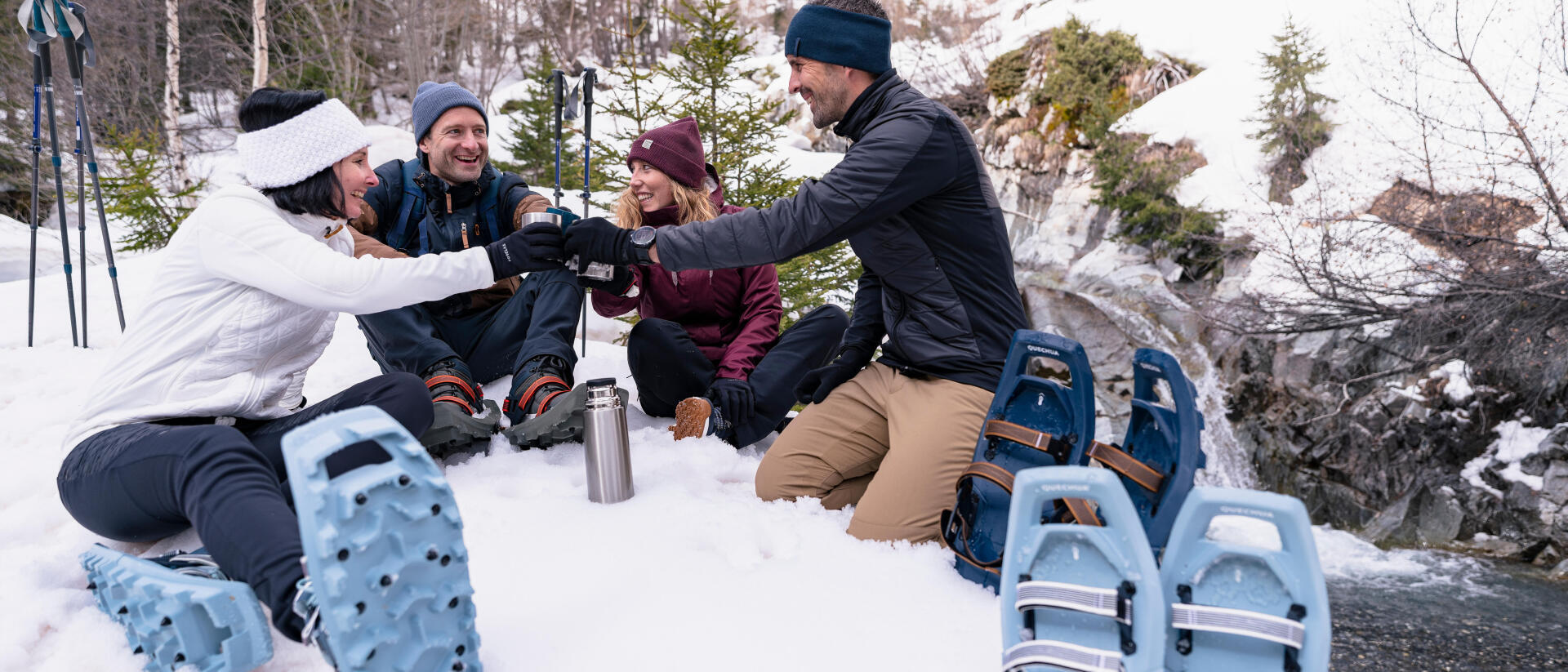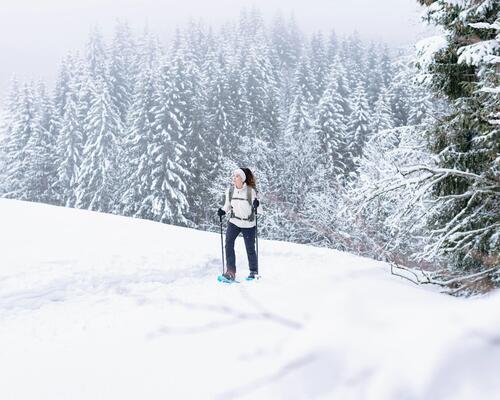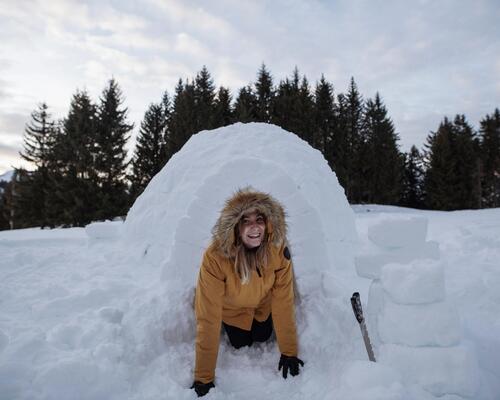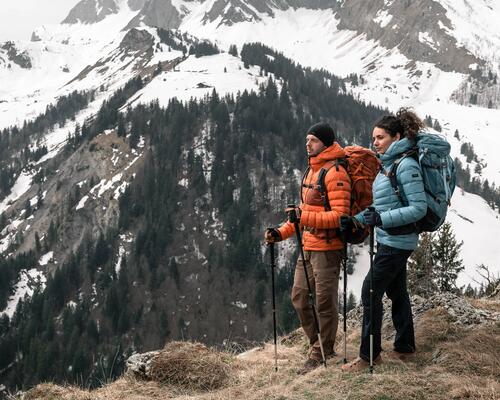1/ Adapt clothing layers based upon effort
We cannot say it enough but you must adapt your equipment to suit the intensity of your effort. If, when climbing, you can't be bothered to take off your fleece, you risk sweating and will be left damp even if you are wearing a breathable T-shirt.
Once damp, it is more difficult to warm up particularly when resting.
You can also select clothing equipped with ventilation zips (airing on the neck, armpits) to help you regulate your body temperature.
Do you need to revise the 3 layer technique"?




